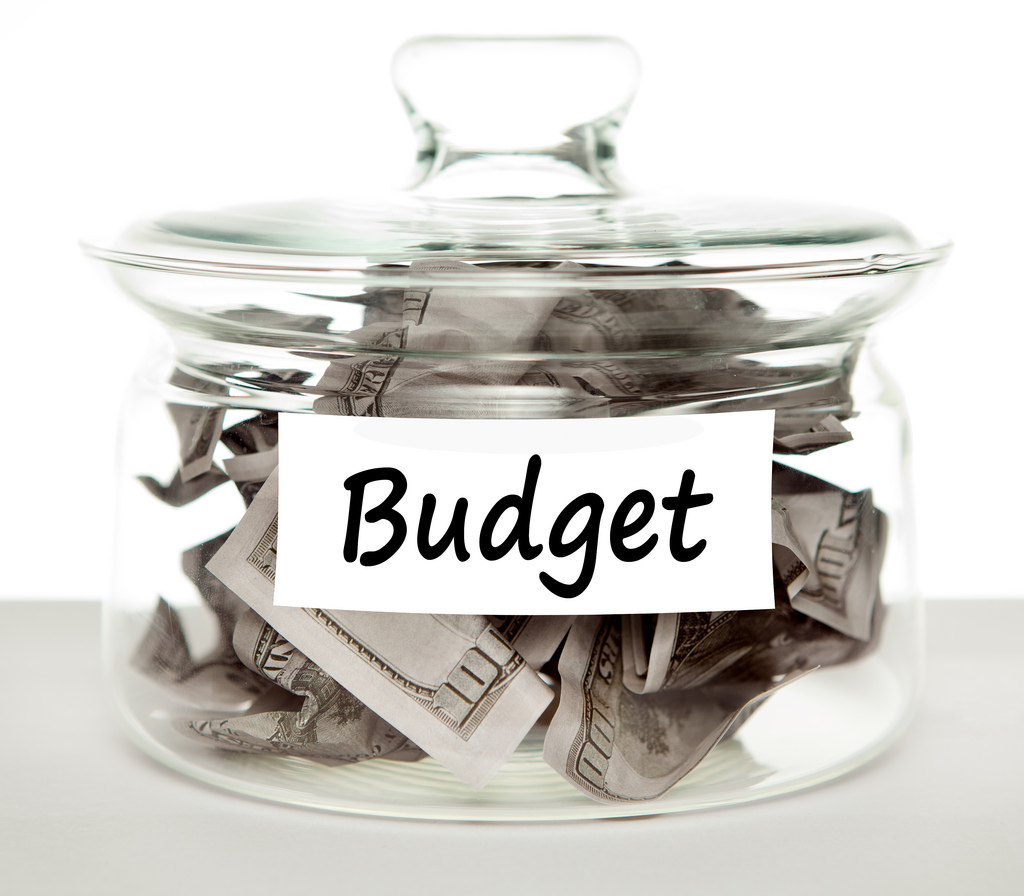10 Budget Basics for Families
Leah and I have been living off of a written budget for a few years. Honestly, we are just now getting somewhat good at it. We having been very good at writing a budget for probably four years or more, but we are finally good at evaluating it at the end of each month to be sure we stuck with it. I say that to let you know that today’s post is not written by an expert, but by someone who is just trying.
If you are not used to being on a budget, this post is meant to give some very basic information to help you get started.
10 Budgeting Basics
1. Every dollar is accounted for. In other words, think about every dollar you will earn this month. The most obvious income is a regular salary, but you may be expecting a royalty check, jury duty, tax refund, or other money, too. If it is realistic that you’ll make more (or less) this month, start with what you will really make this month.
2. Start with God. As a Christian, the first line on your budget after “income” needs to be “giving.” I do not believe we must tithe (literally, give 10%), but I do think we need to consider how much we are going to give to the Lord before we spend on lifestyle. I do think 10% is a good starting point, if for no other reason than it is easy math. If you make $3000 this month, just write $300 on giving. You might be surprised at how easily you can give that much.
3. Next comes true necessities. Think about the word “necessities.” Food is a necessity. Eating out is not. After “giving,” the next lines on your budget need to be the things that are necessary to live. I would say food, electric bill, water bill, and your house payment or mortgage would need to be the necessities. There may be a few others (gas for the car is probably there, too), but true necessities is actually a pretty short list. Beyond giving and true necessities, you are now just spending on lifestyle.
4. Both of you get a say. This is not to be something one person does and then informs the other what the family will be doing. Both of you know things that are coming up during the month, and each of you have things you’d like to do, as well. While making a budget can be frustrating, you might be surprised at how much good and deep conversation you have around this subject when both husband and wife really feel like they have a say.
5. Be realistic, but challenging. “We only need $40 this month to feed our family of 8, and we are going to eat organic only.” Yeah, right. While you may have to tighten your belt at times, a budget should allow you to be realistic, too. We have tried to go months without eating out before, only to have an evening where we ended up doing it. So, we put down a small amount, but a realistic amount there. Think of areas like gas for the car, eating out, clothing, groceries, and gifts, and be realistic. However, challenge yourselves with a larger goal. If you are paying off debt, for example, you need to cut back in some other areas to reach that goal!
6. Give yourself grace (especially at first). You will stink for the first month or two at making a budget. You won’t stick to it perfectly. It’s okay! Give yourself grace and learn from the areas in which you struggled in the previous month. Dave Ramsey often says it takes 90 days to do a budget right, but that’s just a rule of thumb. Be gracious to yourself. You’re doing something good and growing in this area. That’s all that matters.
7. Save for big stuff. We do not go into debt except on our mortgage. That means we have to save up for big purchases as well as future expenses. As one who has been in debt and now is not, let me challenge you to get out of debt and save up for the big stuff. Please! We have a car fund, and we put money away for retirement and college each month. We also have a fund we call our “house fund,” where we save up for larger purchases and repairs around the house. If you are intentional in areas like this (or vacations, or any other large expenditure), you’ll be amazed at how much you can save up and not have to borrow a dime.
8. Evaluate each month. This is where we have really struggled until recently. Even when you get good at doing a budget, you are still going to mess up sometimes, or do better than expected at times. What will you do with that extra money, or how will you cover the overspending? You need to evaluate and make sure you know what all the debit card purchases, checks, and other money was spent on. By the way, if you will spend mostly with cash, this becomes far easier.
9. Your last number should be “0.” When you make your budget, spend every dollar. If you write down your budget and there is $97.43 left at the end of the page, guess what will happen? You’ll spend it, and have no idea where it went. Even if you just write, “Add to savings,” that’s a great usage of that extra money. Make sure you know where every dollar is going.
10. Make a new budget each month. No two months are alike. This month will be someone’s birthday, but that won’t happen next month. This month, school pictures will be taken, but not next month. Consider this month, and make a budget for this month. This is also a reason why working together on a budget is so important.
This is, by no means, an exhaustive list of how to budget, but these 10 steps should help you get started.
QUESTION: What are some other “budget basics” you would suggest? Leave your suggestions in the comments.
Additional Resources
Budget forms from Dave Ramsey [DaveRamsey.com]
5 Budgeting Basics for People Who Hate Budgeting [Huffington Post]
A Free and Simple Budget Planner [Get Rich Slowly]
——————————-
Photo credit: Tax Credits on Creative Commons
Don’t Miss a Post!
Subscribe via email to get every post for free, and get a FREE eBook.



